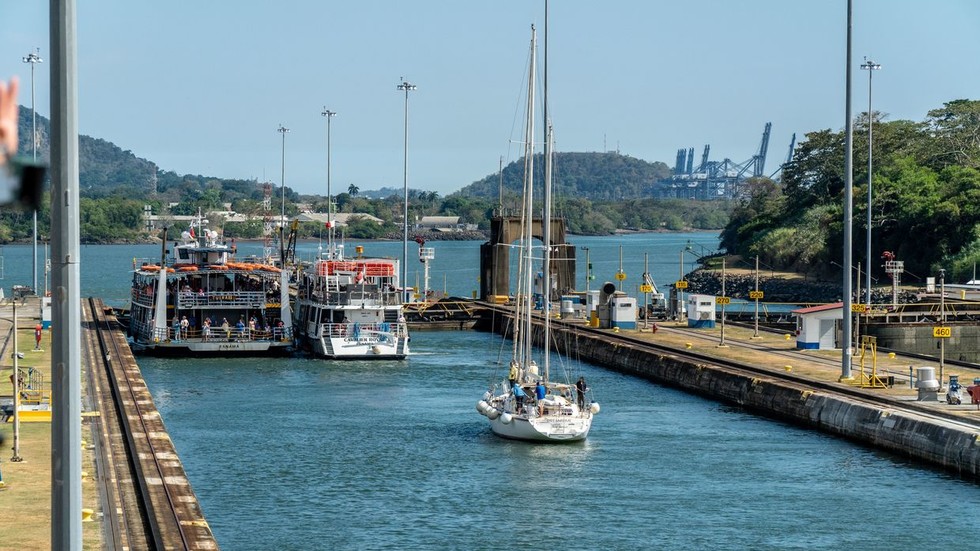Rebel groups in northwestern Syria say they are pushing towards the city of Hama after taking control of nearby Aleppo in a lightning offensive that started last week.
The attempted southern advance on Sunday comes on the fifth day of the surprise rebel offensive as Syrian and Russian forces have launched counterattacks, reportedly pounding opposition-controlled Idlib province and Aleppo with air attacks since Saturday.
Government forces under the control of Syrian President Bashar al-Assad have also been fortifying the northern province of Hama, according to the Syrian state news agency, SANA. It reported the army overnight pushed back opposition fighters in its northern countryside. Forces there were being resupplied with heavy equipment and rocket launchers, according to SANA.
On Sunday, United Nations special envoy to Syria, Geir Pedersen, appealed for all stakeholders in the conflict to immediately seek a political resolution.
“The latest developments pose severe risks to civilians and have serious implications for regional and international peace and security,” he said.
The fighting marks the most significant turn in years in the Syrian war, which began with popular uprisings across the country in 2011. Since 2020, the front lines had largely been stagnant with an array of rebel groups largely contained to a small portion of Idlib province.
But on Friday, opposition fighters led by Hayat Tahrir al-Sham (HTS) entered Aleppo, prompting government forces to withdraw from the strategically significant city of more than 2 million people.
The rebels have since claimed several strategic victories, including taking control of the supply-line town of Khansir, Aleppo Industrial City, Aleppo’s military academy and the field artillery college.
Formerly known as al-Nusra Front, the Syrian branch of al-Qaeda, HTS has distanced itself from the group while becoming the strongest opposition movement in northwestern Syria.
It is still considered a “terrorist” organisation by the United States, Syria and Russia.
Push towards Hama
In his first public comments since the start of the offensive, released late on Saturday, al-Assad said his forces will continue to defend the government’s “stability and territorial integrity against terrorists and their supporters”.
He said Syria is able to defeat the rebel groups no matter how much their attacks intensify.
But reporting from the Turkish-Syrian border, Al Jazeera’s Sinem Koseoglu said rebel forces remained on the outskirts of Hama and are “trying to counter the Syrian government forces there”.
“The villages, towns that have been taken by the opposition, sometimes the Syrian government forces take them back,” she said. “So there is an exchange of [control]. Still, it’s very dynamic, very volatile on the ground.”
The government said air strikes on opposition-controlled areas were targeting weapon depots and rebel strongholds.
However, the United Kingdom-based war monitor, the Syrian Observatory for Human Rights, said Russian strikes hit camps for displaced people on Sunday, killing eight civilians and wounding 50.
The Syrian Civil Defence, which operates in opposition-held areas, also reported a series of attacks on Aleppo, including the Aleppo University Hospital in the centre of the city. It was not immediately clear if there were any casualties.
Years of war in Syria have created one of the world’s largest displacement crises with thousands more people reported displaced in the latest fighting.
Fears of ‘scorched earth’
Speaking to Al Jazeera, Razan Saffour, a British-Syrian human rights activist with family in Aleppo, said that while there is relative stability in Aleppo, there is fear over the response from government and Russian forces.
Russia’s military intervention in the country starting in 2015 as well as Iran’s two years earlier helped to turn the tide of the war in favour of al-Assad. Russia’s aerial bombardments of Aleppo then helped government forces take full control of the city in 2016.
“We’re speaking about rebel groups who are gaining Syrian territory at a very, very fast pace, but at the same time, they don’t have air defences,” she said.
“And when we’ve seen this happen [previously], … the al-Assad regime, Russia and their ally Iran responded with a scorched earth policy.”
Iranian Foreign Minister Abbas Araghchi was to travel to Damascus on Sunday, telling reporters Tehran would back al-Assad.
Jordan’s King Abdullah II and United Arab Emirates President Sheikh Mohamed bin Zayed Al Nahyan also expressed solidarity with al-Assad in recent calls with him.
Still, Saffour said that beyond the confusion and fear, there is also a sense of anticipation among some residents of Aleppo who had lived for years under government control.
“We’re very apprehensive, but we’re also very excited and very hopeful to see what’s going to come next,” she said.

 3 weeks ago
6
3 weeks ago
6









